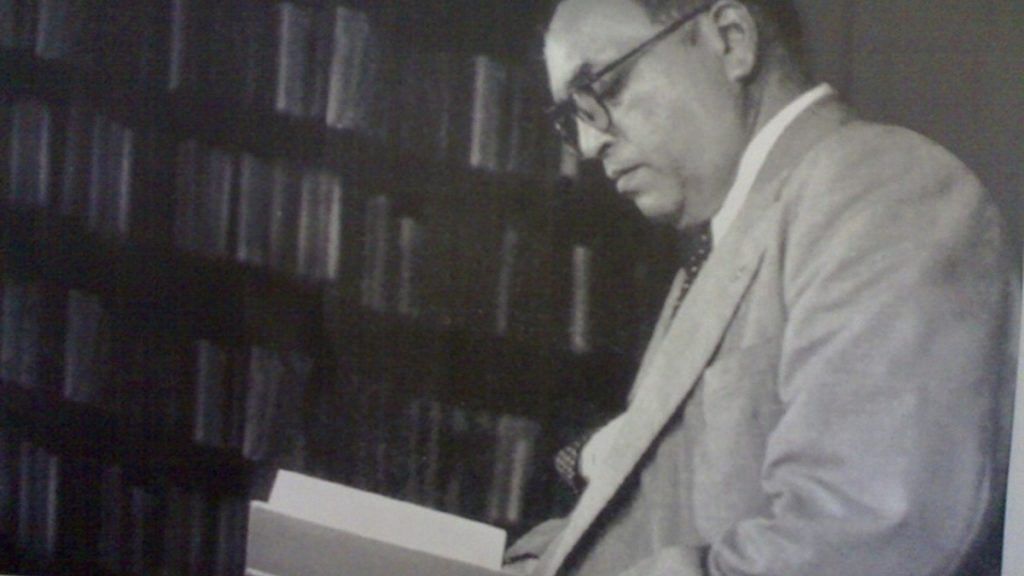B.R. Ambedkar didn’t approve of Mahatma Gandhi’s patronising attitude towards the Dalits or Sardar Patel’s opposition to the idea of reservation.
New Delhi: For as long as he was alive, B.R. Ambedkar, the father of the Indian Constitution, was a bitter critic of the Congress and its leaders, especially Mahatma Gandhi and Sardar Vallabhbhai Patel, both of whom he felt were responsible for the bad deal that the Dalits were getting in the country.
Ambedkar’s constant complaints about the treatment meted out the weaker classes by the (mainly) upper caste leadership of the Congress were also a result of his own sufferings.
On his 62nd death anniversary, ThePrint takes a look at the strained relationship Ambedkar shared with two other stalwarts of modern Indian politics.
Birth and education
Bhimrao Ramji Ambedkar was born on 14 April, 1891, in a military family — his father, grandfather and uncles were all senior officers (Subedar Majors, the highest rank in the Indians could reach) in the British Army. But growing up, Ambedkar was often a victim of vicious abuse for being an untouchable even though he was a brilliant student.
This didn’t deter him from becoming the first-ever untouchable to win a full scholarship to study abroad — Columbia University, New York.
On his return, even though he was appointed Military Secretary to the Maharaja of Baroda, who saw a spark in the young man, Ambedkar had to leave his job just because no hotel or lodge would offer him a place to stay. He went abroad again, this time to join the London School of Economics, where he got his second doctorate. On his second return, he realised that despite his high education, he still remained an untouchable.
And this led to the birth of his avatar as a politician.
Also read: In MP town where Ambedkar was born, Dalits are made to feel like ‘gandi naali ke keede’
The politician
Having decided to join politics to work for the weaker section, Ambedkar soon became a leading voice in the cause of the downtrodden. In doing so, he often took on Gandhi and Patel.
Ambedkar was of the belief that Gandhi didn’t genuinely work for the emancipation of Dalits, often accusing him of being patronising towards the community. The two had a bitter fallout over the 1932 Poona Pact — promising separate electorates for Dalits — which Gandhi opposed by holding a fast unto death.
Such was his angst that, in 1945, he wrote the one book — What Congress and Gandhi have done to the Untouchable — that was so critical of Gandhi that the Mahatma personally got leading lights of the freedom movement to write counters to Ambedkar’s book.
Even the ‘Harijan’ members of the Congress opposed Ambedkar. He was a lonely man, so much that he couldn’t even get elected to the Constituent Assembly from erstwhile Bombay state. He was eventually elected from Bengal.
Such was his standing that despite his vocal opposition to the Congress, he was appointed independent India’s first law minister in the Jawaharlal Nehru government.
He was also appointed chairman of the Drafting Committee to finalise the draft Constitution of the country, an ode to the high esteem even his critics held for the one-man army he was. While the Congress and its allies had 201 out of the 212 general seats, Ambedkar’s Scheduled Castes Federation had just one, his own.
Not many might be aware that the man who is often credited with having given India, along with other members of the drafting committee, the wonderful document called the Indian Constitution, once walked out of the Assembly after Patel and some others opposed the recommendation to provide for reservations in seats for untouchables.
Patel and his supporters took the ground that since the Constitution was going to provide for abolishing untouchability, there was need for such reservation.
Today, if the scheduled castes and scheduled tribes have reserved seats from where they can get into the Lok Sabha and state assemblies, they have only Ambedkar to thank.
Also read: ‘Mooknayak’: Modi govt plans documentary to showcase B.R. Ambedkar to the world
Electoral politics
In the first general elections of 1952, Ambedkar contested from Bombay City North constituency. Two members were to be elected from the constituency, including one from the scheduled castes.
Ambedkar’s main opponent was Congress’s Narayan Sadoba Kajrolkar. Ram Manohar Lohia decided to back Ambedkar. And who won? Not Ambedkar. He lost by almost 15,000 votes.
The defeat led to possibly one of the first election petitions in independent India, with Ambedkar moving the election tribunal, challenge the results on the charge that winner had indulged in corrupt practice to secure victory. Ambedkar lost.
Interestingly, S.A. Dange, founder-member of the Communist Party of the India was arrayed as the main respondent in the election petition by Ambedkar.
Before the next general elections, Ambedkar died.
